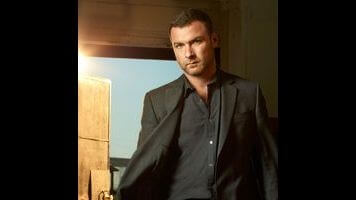
We’re in the final three episodes of Ray Donovan’s debut season, and the strengths of the show are starting to shine through the cracks. “Fite Nite” is easily the best episode of Ray Donovan I’ve seen yet, a heavy, climactic hour that lets the cream of the show rise to the surface. Up until now, the best parts of Ray Donovan have unfortunately been diluted by meaningless repetition—Abby asking Ray what he’s doing with his time becomes less effective after she’s already asked 50 times. But if you can leave that aside (and it’s a little easier with “Fite Nite,” because it’s been two weeks since the last episode) the urgency of the characters’ emotional turmoil becomes more potent.
I’m beginning to think that Ray Donovan is an idea that got hastily reworked into another medium. Maybe a film that got turned into a show, or an episode that got stretched into a season. It’s great material spread far too thin or paced poorly; unfortunately, even in “Fite Nite,” the lasting impression is of a show that has not been totally thought through. But “Fite Nite” has the advantage of a lot of action. It seems to me like a few of the show’s core story elements finally come to light in this episode—namely, that Ray is a man so twisted by anger and so unable to trust that he has a hit put out on his father, a decision that will clearly wreck him emotionally, even if it’s the right call for his family’s security. And now that we seem to be approaching some of the essential pieces of Ray Donovan’s narrative, the show is getting better.
The “fite” in question is a boxing match at Terry’s gym; unbeknownst to everyone except Ezra, Ray is using it as a cover, so no one knows that he’s behind his father’s murder. The highlight of the evening is that Ray’s half-brother Darryl is making his boxing debut, hoping to make Mickey and the rest of the Donovans proud. The story of the boxing match runs alongside the deeper, darker current of attempted patricide, pulling almost all parts of the episode forward.
This whole season, Ray Donovan has wanted us to get invested in a few key emotional plotlines: the Donovan marriage; Mickey, the ambiguously reformed mobster; and Bunchy, the abuse survivor. But it’s been pretty inconsistent in making each of those resonant in the past nine episodes—occasionally getting bogged down in distractions like Bridget’s storyline, which offered little to no substance or relevance. (I know there are two characters named Bridget, but seriously, they both have pointless stories.) One of “Fite Nite's” major successes is that it hits on each of these.
Mortal danger works for Mickey. He becomes starkly relevant when he’s a victim (somehow Jon Voight is more poignant when he’s put-upon). Put up against Sully, he also gets some quiet dignity. He’s wrenched from bed with a woman and thrown into a scene of terrible (if not totally affecting) violence. Sully casually kills the woman and takes his time savoring the idea of killing Mickey, happily informing him that Ray’s the one that put the hit out on Mickey. It’s not perfect, but it’s the most resonant this character has been yet. Similarly, even though Abby and Ray have covered the same ground a thousand times, “Fite Nite” shows us the toxic attraction and attacking between the two, a dynamic that sometimes goes against their best interests. I never noticed it before, but Liev Schrieber and Paula Malcomson have incredible chemistry—a quality that holds up their often poorly written relationship. Poor Bunchy has been sympathetic the whole time, but with the return of the priest who abused him, he’s unraveling in a more relevant way. There’s an unevenness to the storytelling, still, but in the muddle are pieces of unique, compelling character development. This week, I particularly liked Darryl’s mini-arc, trying to prove himself to the older Donovans. Mickey getting him a little monogram that says “BLACK IRISH” is adorable, too.
“Fite Nite” also is stronger for de-emphasizing Ray’s largely confusing profession as a fixer. No Lena, no Avi, very little Ezra, no Marvin Gaye Washington. No blonde starlet with a drug problem handcuffing herself to the bathroom fixtures. No action heroes hiding their homosexuality. The whole episode gets a chance to breathe without the baggage of trying to look hip and relevant.
The episode ends with Sean Walker dead and Mickey distressingly alive. Nothing feels resolved, but the agitation for once feels potent. There are two episodes left in the season. Let’s see if Ray Donovan can close the deal.